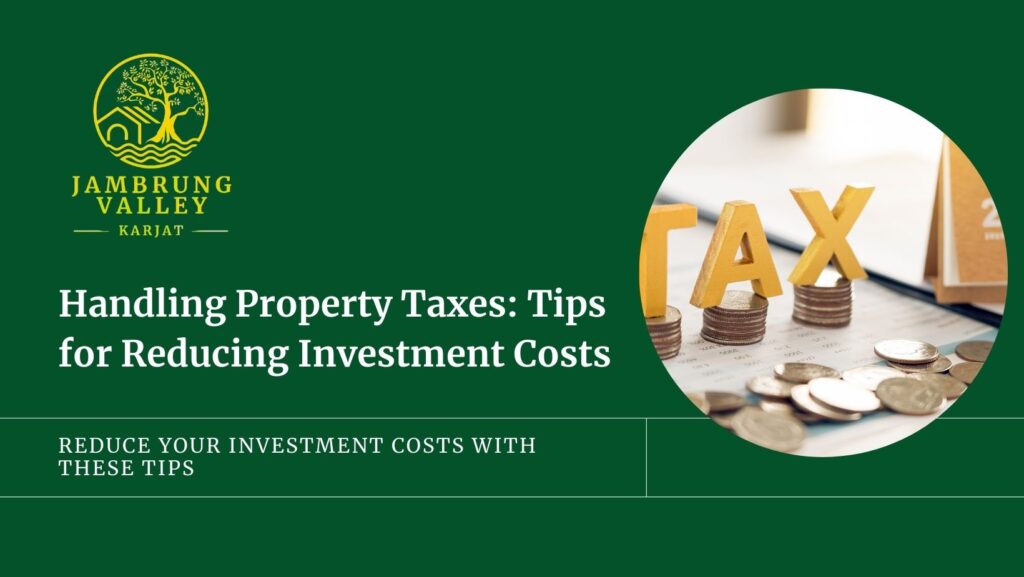
Handling Property Taxes: Tips for Reducing Investment Costs
Property taxes are a critical aspect of real estate ownership and investment. While they fund essential community services, high property taxes can significantly impact investment profitability. For property owners and investors alike, understanding strategies to manage and reduce property tax liabilities is essential to optimizing costs.
Understanding Property Taxes
Property taxes are levied by local governments based on the assessed value of a property. They vary widely depending on location, property type, and applicable tax laws. These taxes fund services like education, infrastructure, public safety, and community projects.
Key Factors Influencing Property Taxes
- Property Value: The assessed value of the property plays a major role in determining tax liabilities.
- Local Tax Rates: Rates differ from one municipality to another, impacting the total amount owed.
- Property Use: Residential, commercial, and industrial properties may have different tax structures.
Tips for Reducing Property Tax Costs
1. Review Your Property Tax Bill Carefully
Errors in property tax assessments can lead to overpayment. Always review your tax bill for accuracy and verify:
- Property classification
- Assessed value
- Applicable exemptions
2. Appeal Incorrect Assessments
If you believe your property is overassessed, consider filing an appeal with your local tax authority. Gather evidence like recent sales of comparable properties, photographs of your property, and reports on its condition to support your case.
3. Leverage Tax Exemptions and Credits
Many jurisdictions offer exemptions or credits that reduce property tax liabilities. Common examples include:
- Homestead Exemptions: For primary residences.
- Senior Citizen Discounts: For elderly homeowners.
- Energy Efficiency Credits: For properties using renewable energy systems.
Check with local authorities to determine which exemptions you qualify for.
4. Invest in Tax-Friendly Locations
When selecting properties, research areas with lower tax rates or more favorable tax policies. Some regions offer incentives to attract real estate investments, which can translate into lower property taxes.
5. Maintain Accurate Records
Ensure that your property records are updated and reflect its current state. For instance:
- Correct square footage
- Number of rooms
- Additional features or lack thereof
Outdated or inflated records can increase assessed values unnecessarily.
6. Limit Property Improvements
While upgrades enhance property value, they may also raise your tax liabilities. Opt for improvements that add utility without significantly increasing the property’s market value.
7. Negotiate Tax Payments
If property taxes are straining your budget, discuss payment plans or deferral options with local authorities. Many municipalities offer flexible terms for property owners facing financial difficulties.
Advanced Strategies for Property Investors
1. Form Real Estate Investment Entities
Establishing entities like LLCs or trusts for property ownership can help in optimizing tax liabilities. Such structures often come with benefits like asset protection and tax advantages.
2. Conduct Cost Segregation Studies
For investors in commercial real estate, cost segregation studies can identify components of the property that qualify for accelerated depreciation, thereby reducing taxable income.
3. Bundle Property Investments
Owning multiple properties in the same jurisdiction may allow you to negotiate bulk tax discounts. This strategy works well for large-scale investors or developers.
4. Monitor Tax Policy Changes
Stay updated on legislative changes affecting property taxes. Local governments often adjust rates, introduce new exemptions, or modify rules that could impact your liabilities.
Benefits of Proactively Managing Property Taxes
Effective property tax management can:
- Enhance Investment Returns: Lower taxes mean higher net profits.
- Improve Cash Flow: Reduced costs free up funds for other investment opportunities.
- Ensure Compliance: Staying proactive avoids penalties and legal issues.
Property Tax Management in Emerging Markets
Emerging real estate markets, such as Karjat’s Jambrung Valley, offer exciting opportunities for investors. With lower property tax rates compared to urban centers and government incentives for development, this region is becoming a hotspot for profitable real estate investments.
By staying informed and employing the right strategies, property owners in such regions can significantly reduce their investment costs while enjoying long-term gains.



